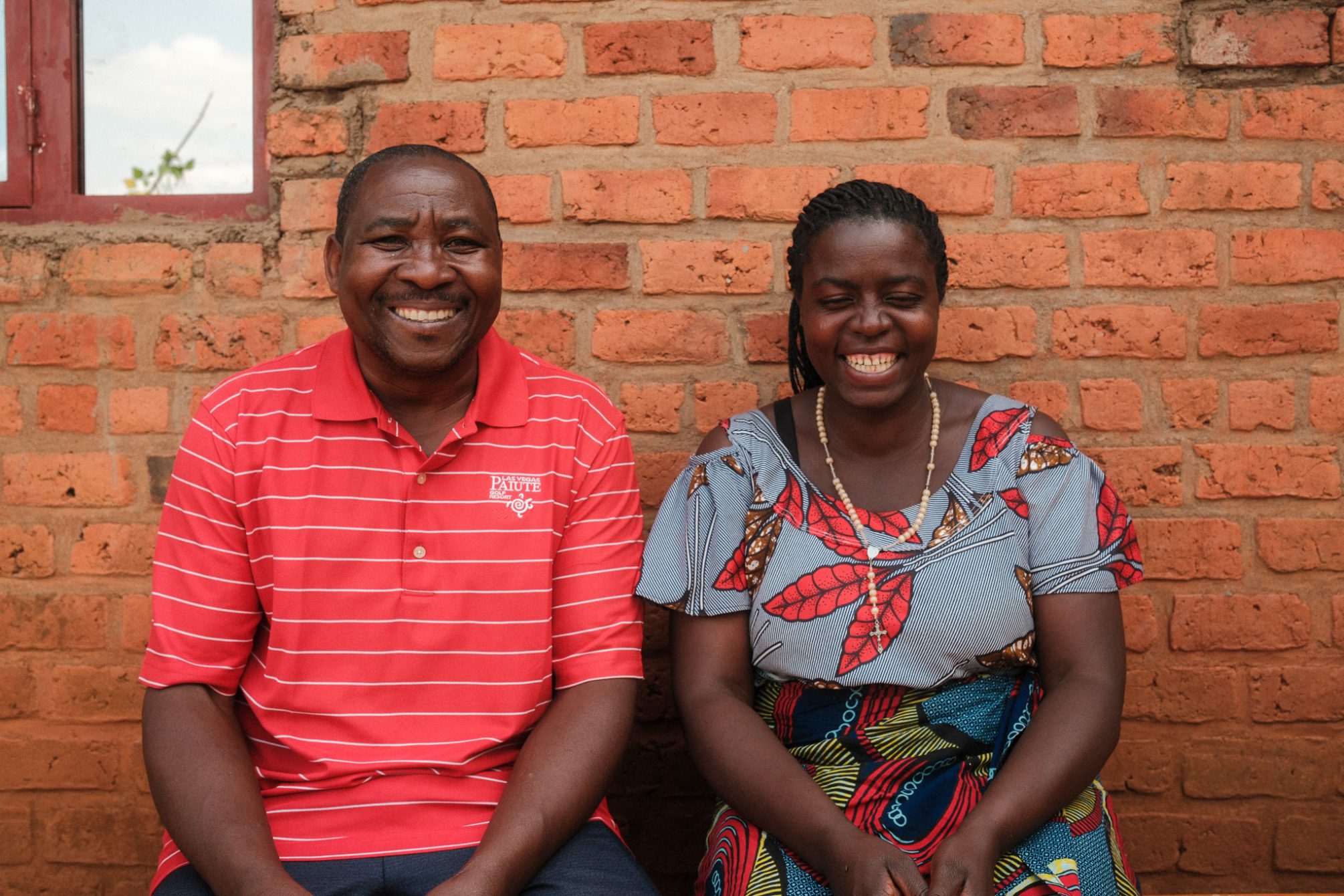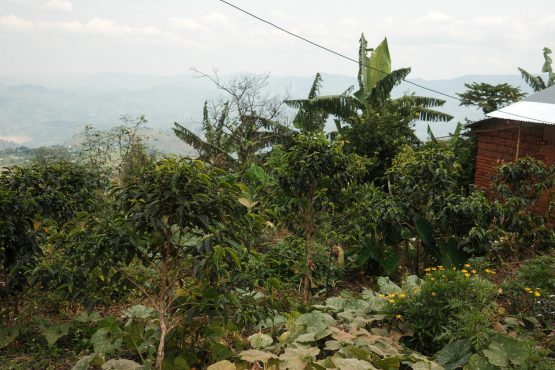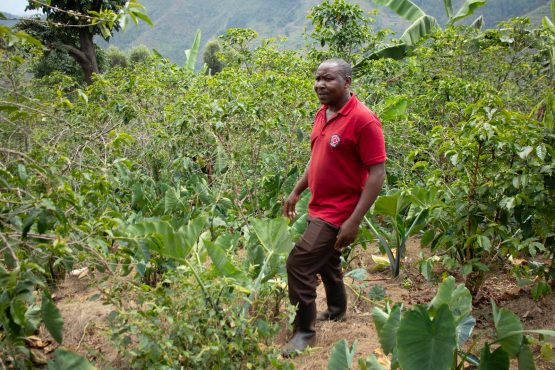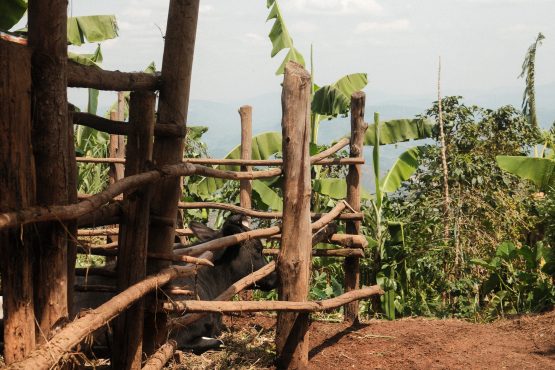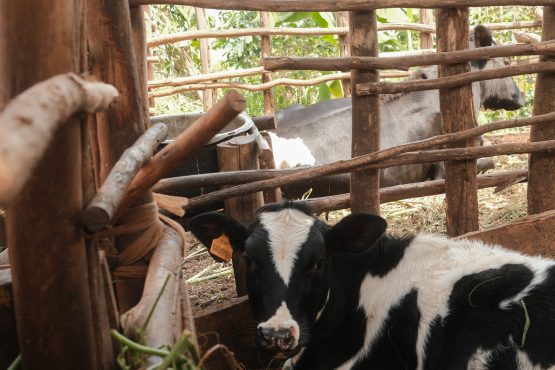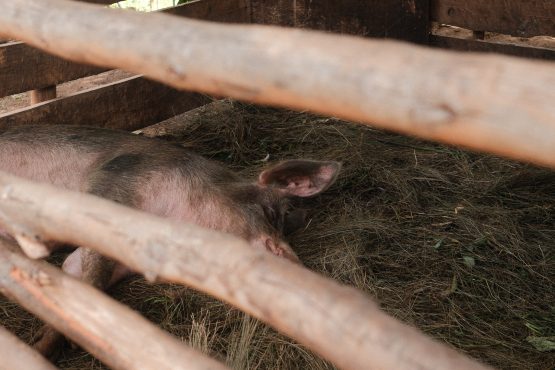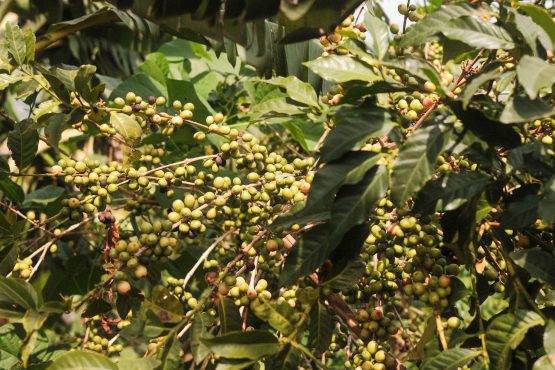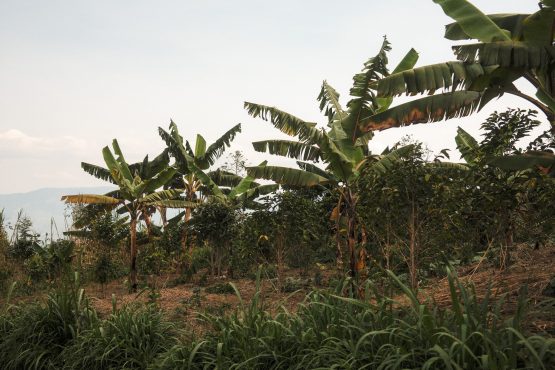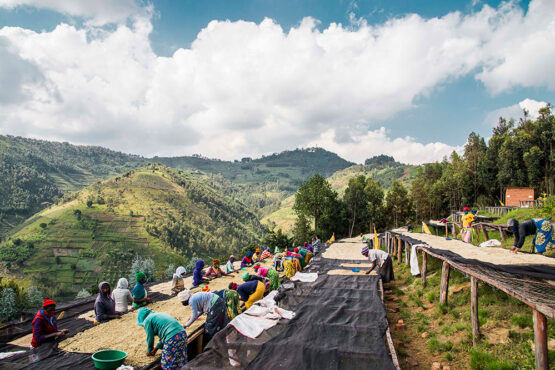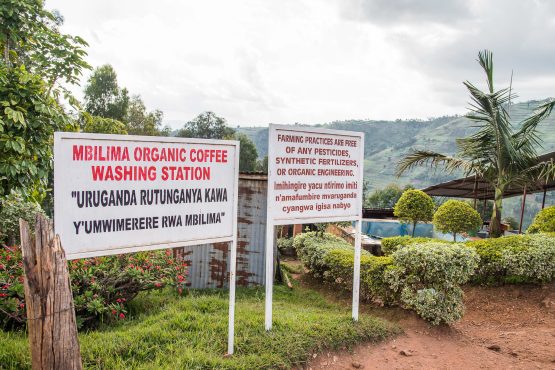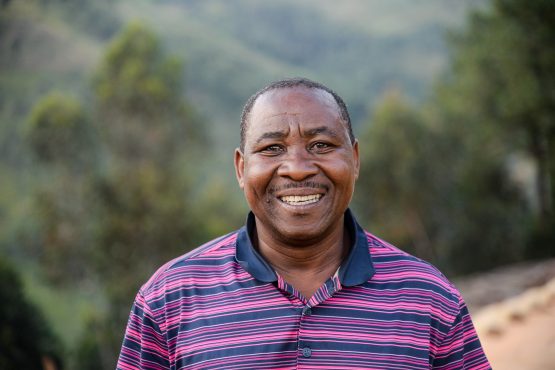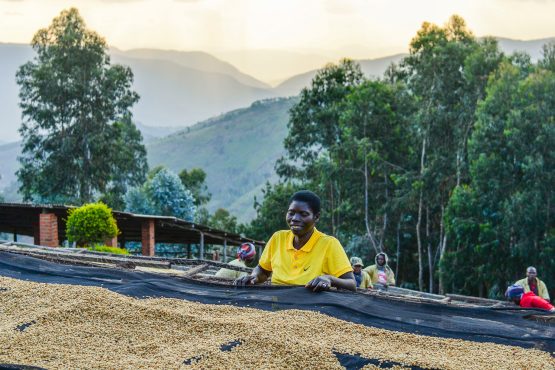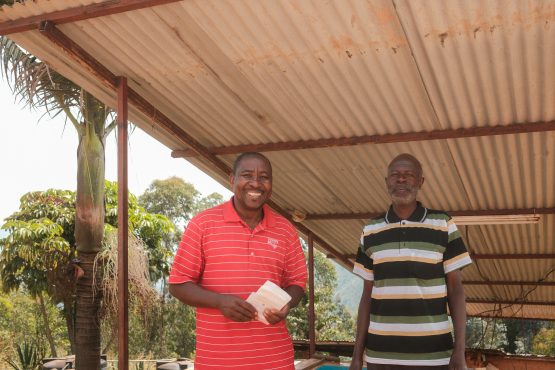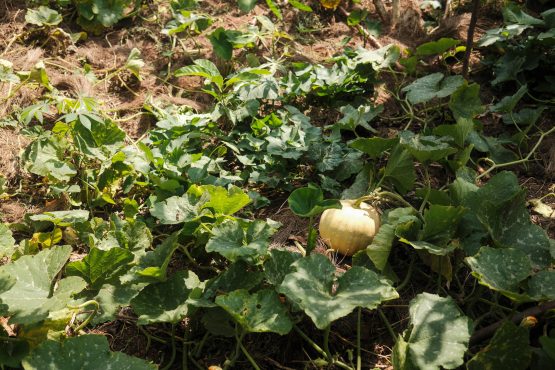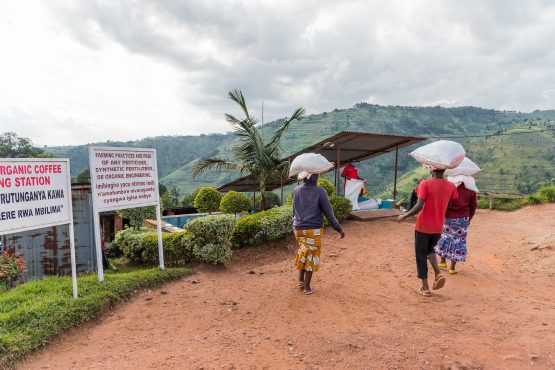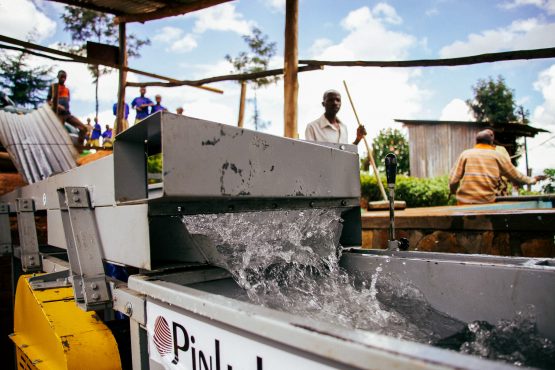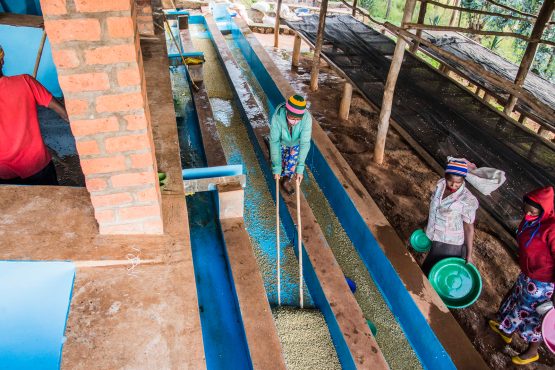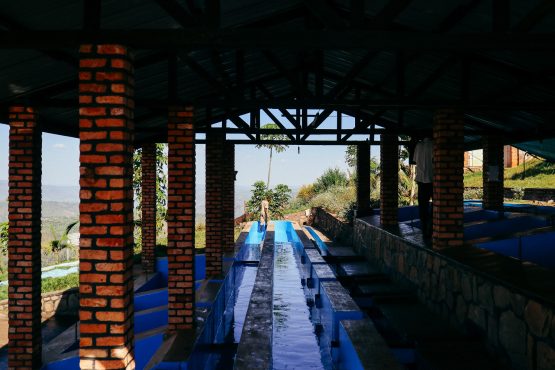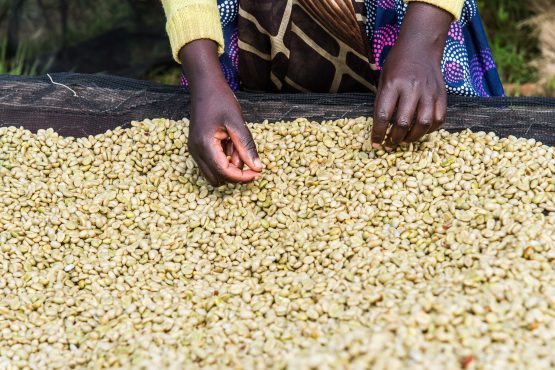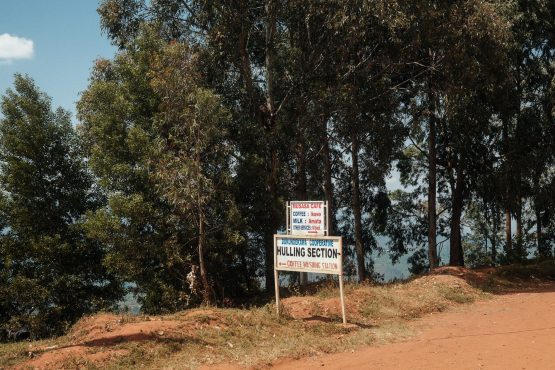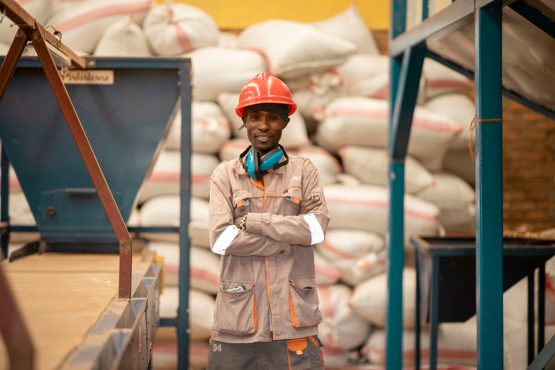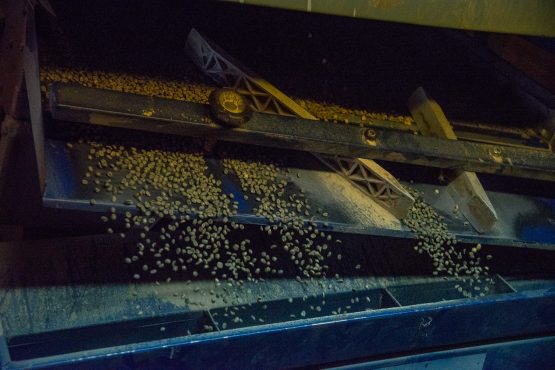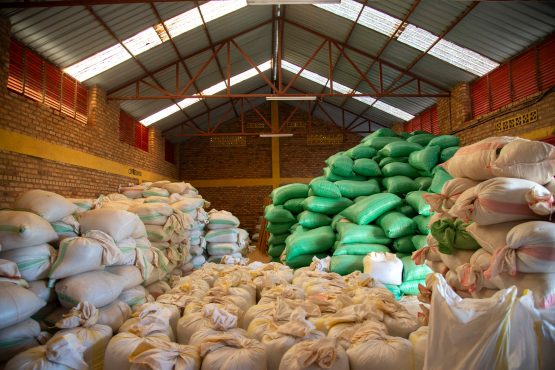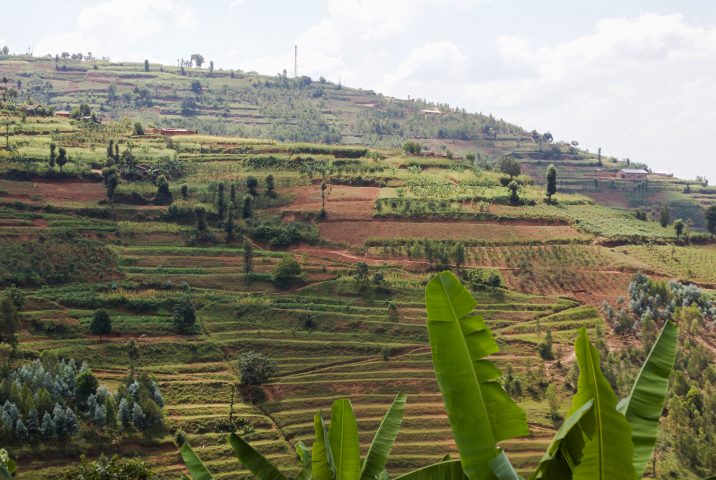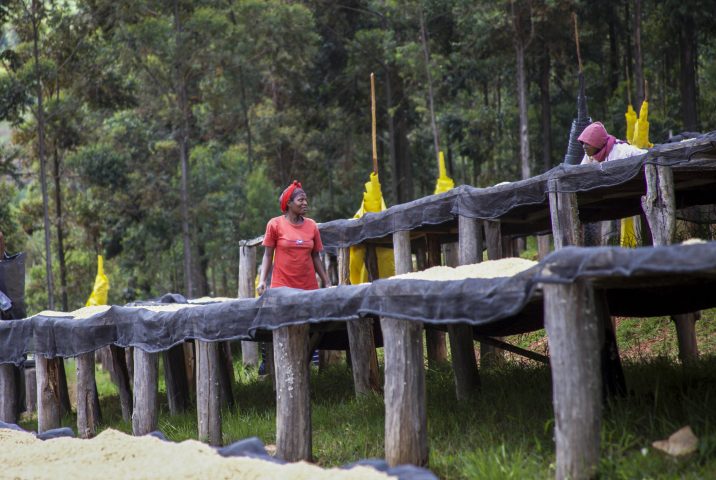Jean Bosco Habimana Organic
Vibrant and well-structured with cumquat acidity, toffee apple and date sweetness.
For years we’ve known Jean Bosco Habimana as the friendly, jovial manager of Mbilima washing station, who always welcomes us with a warm smile. That’s why we feel extremely fortunate to be able to share a lot grown by Jean Bosco himself and wife Emerthe Nyiramajyambere at their farm Akanduga-Mbilima.
At 51 years old, Jean Bosco has worked in coffee most of his life. His career began as a teenager in the 1980s, when he would help at his family’s farm. After the Rwandan genocide and subsequent renewal of the country’s coffee industry, the recently married Jean Bosco started a career at Dukunde Kawa’s Mbilima washing station in 2004. At around this time, he also inherited a plot with 52 coffee trees from his parents, which he named Akanduga-Mbilima. His diligent work ethic was quickly recognised by Dukunde Kawa, and he went on to become a machine operator in 2005 (when the site officially opened) and eventually the station manager in 2012.
Through his income earned as a cooperative employee, and from selling his coffee cherry, Jean Bosco has been able to build a house and expand the size of his property, gradually increasing to the 1,100 trees he currently owns. Today, he and wife Emerthe are deeply embedded in the cooperative and all its activities, with nearby farmers like Andre Hakizimana having become good friends and mentors of the couple. The couple live with their four children, and along with coffee and food crops, the family also keep two cows and a pig.
Jean Bosco and Emerthe have been farming 100% organically since 2015. They use manure from their cows to fertilise and have planted beans, potatoes and corn to prevent erosion and keep the soil moist. Walking up to the property on our most recent visit to Rwanda, we chatted in the couple’s beautiful front garden, which includes a few coffee trees, along with pumpkin and squash (which also provide excellent ground cover) for consumption and herbs that are used in the kitchen.
Jean Bosco and Emerthe explained how incredibly busy they are during the harvest, because he spends increasingly long hours at Mbilima as the season peaks, while Emerthe tends to the farm. Here, she also looks after her own plot of coffee, which is sold through the Rambagirakawa women’s group. Because of the region’s microclimate, the couple’s plot produces a fly crop, keeping them occupied well into October and even November. When we asked Jean Bosco what he hoped for the future of the farm, he told us, “I’m always focused and inspired to grow and expand the coffee plantation. Maybe I can grow up to 1,500 coffee trees, then I can stop and maintain that number.”
Before the establishment of cooperatives and centralised washing stations, coffee production was extremely arduous for Rwandan coffee farmers. Processing was labour-intensive and lengthy, with very little equipment, training or resources available to rural farming communities. Typically, coffee cherries were depulped by hand using stones and parchment was dried at farm level, before being sold to a middleman or ‘broker’ who would then on sell the coffee to traders or exporters based in Kigali. Not only did this result in a long and challenging harvest season for individual farmers, it also denied them any leverage for negotiating prices to achieve a fair and reliable income. Thus, the prices growers earned were far from profitable, and due to the poor processing techniques followed, Rwandan coffee lacked a strong reputation internationally.
With the forming of cooperatives like Dukunde Kawa, farmers were provided with the support, education and resources necessary to adopt better farming practices, and processing moved to centralised washing stations – where shared infrastructure, equipment and adequate labour both minimised the workload for individuals and dramatically improved the coffee’s quality. When we asked Jean Bosco what being a part of the cooperative meant to him, he told us that, “Dukunde Kawa is a blessing and a life-changer for me and my family. I joined the cooperative as a young married man, and now I’m a man with stable income and numerous achievements! For example, I got a cow from the cooperative; every year we receive a second payment as a bonus; we receive the dividends from the cooperative profit; and I’m employed, so I have a salary that comes monthly. Coffee is my life, but I’m living a good life.“
Head here to learn more about the work of Dukunde Kawa in Rwanda.
ABOUT MBILIMA WASHING STATION
Mbilima is nestled in the high hills near the small town of Musasa, located in the Coko Sector of Gakenke District, in Rwanda’s rugged and mountainous Northern Province. Typically, farms in this area are very small – averaging just a quarter of a hectare – and are situated between 1,800 to 2,100 meters above sea level. Coffee is grown as a cash crop, alongside subsistence food crops like maize, beans and sorghum and some livestock like goats, chickens and sometimes cows.
Mbilima was built in 2005 with the profits earned from the cooperative’s first washing station, Ruli. The site sits at a staggeringly high 2,070 metres above sea level, making it Dukunde Kawa’s highest washing station. By Rwandan standards, Mbilima is a fairly small washing station, yet they always produce exceptional coffee thanks to their dedicated team (which is mostly made up of women). Day-to-day operations at Mbilima are overseen by Jean Bosco himself, who began working at the site when it was being constructed in 2004 and has been the washing station’s manager since 2012, while QC is headed by Agnes Mushimiyimana.
Mbilima washing station is 100% organic, Rainforest Alliance certified, UTZ certified, and Fair Trade certified. Jean Bosco explained that becoming certified was extremely useful in formalising and documenting a lot of things that the cooperative was already doing. “It helped us to better the lives of our producers and quality of our coffee. It’ was a lot of work to get the certifications,” he explained, “but it also made us realise how many positive things we were already doing. The certifications reinforce this.” Because all lots processed at Mbilima are organic, they are dry milled and stored separately.
While the site received organic certification in 2018, the lengthy process began in 2015. Dukunde Kawa wanted to operate one of their washing stations using organic practices and, after consulting with local farmers, they decided on Mbilima. The transition required a lot of work and created challenges for farmers, who initially experienced decreased yields after they stopped using synthetic fertilisers. After a couple of years, however, they began to realise that while volumes stayed the same, their trees were significantly healthier after the harvest (whereas under synthetic fertilisation, they would wither and “dry up” after cherry was picked) — leading to greater stability in the crop produced.
The farmers who deliver to Mbilima are now firm believers in the benefits of organic production and certification. Certification is free for the producer, with Dukunde Kawa covering all costs associated with the program (including surveyors who inspect participating farms on regular intervals), and paying an additional premium for these coffees. By committing to the program, farmers must cease all use of synthetic fertiliser — not just from coffee plots, but from the entire farm — a transition that Dukunde Kawa supports by sending trainers to the farms and providing further education. Since the co-op first launched the initiative, the number of enrolled producers has grown by nearly 25% — proof that in the long run, the benefits outweigh the initial difficulties experienced.
Site manager Jean Bosco has personally seen the benefits of organic farming at his own plot of land, as he also grows coffee and delivers to Mbilima. On our most recent trip to the region, we stopped by Habimana’s home, where he lives with wife Emerthe and his four children. Walking up to the property we first saw the couple’s beautiful front garden, which includes a few coffee trees, along with pumpkin and squash (which also provide excellent ground cover) for consumption and herbs that are used in the kitchen. Jean Bosco was thrilled to hear how much coffees processed at Mbilima were enjoyed in Australia, and assured us that “coffee will be still here, we will keep producing good quality and good volume for you. And we are happy that they are appreciating the quality that we are serving them.”
Head here to learn more about the work of Dukunde Kawa in Rwanda.
PROCESSING AT MBILIMA WASHING STATION
The team at Dukunde Kawa takes a huge amount of care in processing its coffee. All members of the cooperative are trained to only select ripe coffee cherries from their trees.
- On delivery, the cherries are inspected and sorted by hand to ensure only the very ripest cherries are processed. Farmers do the selecting, and receive the highest income from the ripest, healthier fruit. The remainder of their crop still gets purchased by the co-op, at a lower price, to be processed and sold for the internal market.
- Cherry is then sorted by weight using a Pinhalense machine, with any floaters are removed. By using a machine, rather than a clerk, Dukunde Kawa are more transparent with contributing growers about which fruit gets processed. Coffee is then depulped using a mechanical pulper that divides the beans into three grades by weight, with the heaviest, A1, usually having the highest cup quality.
Member farmers deliver cherry to Mbilima every afternoon during the harvest. Cherries are sorted by weight, to ensure only the heaviest and most dense get processed. Freshly pulped wet parchment is carefully sorted and graded on channels before fermenting in tanks. - After pulping, the coffee is pre-washed, graded again using floatation channels that sort the coffee by weight, and left to ferment overnight for around 12–18 hours. The following day, wet parchment is the washed a second time and left to ferment for a further six hours — with the goal of removing as much mucilage as possible without using machinery that may accidentally crush or damage the beans. As with most washing stations in Rwanda, women do the majority of hand-sorting. This takes place in two stages – on the covered pre-drying tables and on the drying tables. Washed beans are moved from the wet fermentation tanks onto the pre-drying tables, where they are intensively ‘wet sorted’ under shade for four hours. The idea is that greens (unripe beans) are still visible when the beans are damp, while the roofs over the tables protect the beans from the direct sunlight.
Washing channels and fermentation tanks at Mbilima washing station. Parchment is sorted as it dries to remove defects and ensure the process occurs evenly. - Next, the beans are moved onto the washing station’s raised drying tables for around two weeks, where they are sorted again for defects, turned regularly and protected from rain and the midday sun by covers, ensuring both even drying and the removal of any damaged or defective beans. During this period the coffee is also turned several times a day by hand to ensure the coffee dries evenly and consistently.
- After reaching 11-12% humidity, the coffee is then transported to Dukunde Kawa’s purpose-built warehouse prior to final dry milling and hand sorting at the cooperative’s milling facilities.
- Located in Ruli, Dukunde Kawa’s dry mill has the capacity to process one full container of coffee a day — and combines the use of technology with meticulous hand sorting to ensure only the best beans are bagged. Before being loaded for export, Rwanda’s National Agricultural Export Development Board also inspects and samples the prepped parchment.
Dukunde Kawa’s dry mill is located across the road from Ruli washing station. Jean Bosco Mugiraneza manages operations at Dukunde Kawa’s dry mill in Ruli. Parchment is dry milled and sorted once more before being packed for export. Freshly dry milled coffee, ready for export!
WHY WE LOVE IT
Most of the coffees we source from Rwanda are traceable back to a washing station, or sometimes a farmer group. Typically, washing stations in Rwanda receive cherry from hundreds (and sometimes thousands) of farmers who own very small plots of land – on average less than a quarter hectare, with just 300-600 coffee trees. Separation of such tiny lots is expensive and impractical, so the large majority of coffees are processed as a mixed lot from multiple producers. Lots are separated as day lots (ie. cherries that were all picked on the same day) rather than by a single farm or producer group.
Single farm microlots like this one are difficult to access, especially from such a small-scale producer (Jean Bosco owns 1,100 trees), because most Rwandan coffee is processed as a mixed lot from multiple growers. In this case, it is made possible because Jean Bosco is a member of Dukunde Kawa Cooperative, who have recognised the excellent agronomical practices he follows and consider him a role model to neighbouring farmers. Because the co-op also operate their own dry mill, they can process smaller lots individually, whilst minimising cost and maintaining excellent quality standards.
Whenever we’ve visited Jean Bosco at Mbilima, he has expressed his excitement when hearing how well-received his coffee has been in the Australian market, recently telling us it was “really motivating and inspiring to hear!” We hope to be able to continue to buy his coffee in the years to come, because we love its vibrant, cumquat acidity, date sweetness and notes of toffee apple and black tea.
